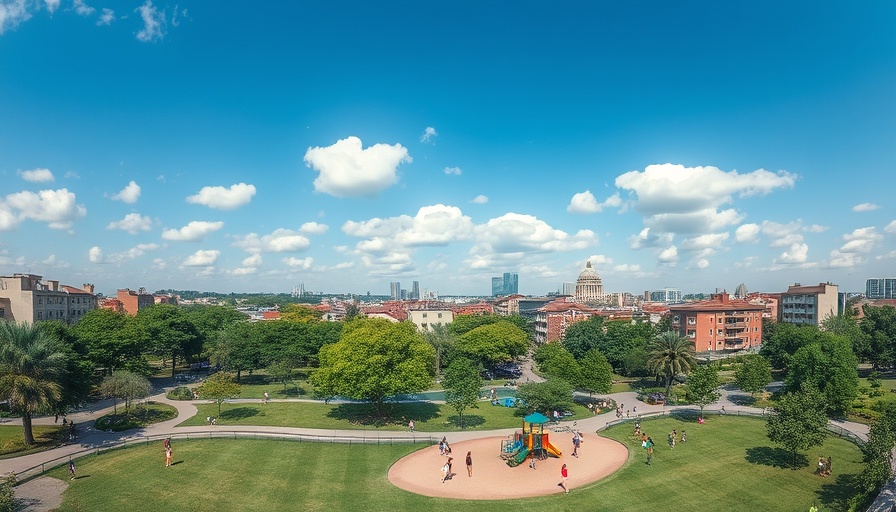
Reimagining Urban Spaces: The Transformation of Pavuna Park
Located in the heart of Rio de Janeiro, Pavuna Park exemplifies how thoughtful landscape architecture can foster community ties and improve urban living. Designed by Embyá - Paisagismo Ecossistêmico, this park spans over 14,000 square meters in an area historically marked by social challenges and low development indices.
A Multifaceted Community Resource
Pavuna Park is not just a green space; it’s a hub for sports, leisure, and education. The park features facilities tailored for various activities, including soccer and basketball courts, a skate park, and an outdoor gym designed for the elderly, reflecting a commitment to inclusivity. The addition of food kiosks and a digital creativity center, or 'Nave do Conhecimento,' shows the architects' dedication to addressing modern needs, promoting digital literacy, and providing a safe environment for community engagement.
Innovative Design and Sustainability Features
The park’s design takes advantage of its natural topography, utilizing the existing slope to create dynamic spaces through stairs, ramps, and bleachers. By incorporating native plants from the Mata Atlântica biome and enhancing rainwater management, the project not only creates aesthetic appeal but also supports local ecology. This commitment to sustainability is vital in urban planning, as it nurtures the environment while providing recreational space.
The Iconic Water Plaza
At the heart of Pavuna Park lies the striking water plaza, characterized by a 22-meter-high sculpture that symbolizes mangrove roots. This feature is not just visually stunning; it adds a playful element where water jets emerge during the day, transforming the space into a vibrant gathering place. Surrounding areas mimic a beach-like atmosphere, resonating with the locals and enhancing the community vibe.
Conclusion
Pavuna Park is more than a park; it's a testament to how urban landscapes can be transformed to serve communities better. By merging sustainability with active community spaces, the architects have created an inviting environment that promotes well-being, connection, and social cohesion. As urban areas continue to grow and evolve, projects like Pavuna Park will play a crucial role in creating sustainable and engaging public spaces for future generations.
 Add Row
Add Row  Add
Add 

 Add Row
Add Row  Add Element
Add Element 






Write A Comment